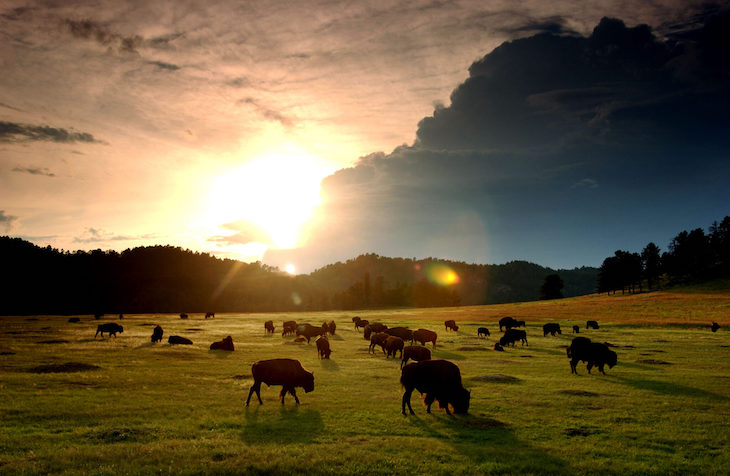‘Rewilding’ Parts of the Planet Could Have Big Climate Benefits
New science backs promoting biodiversity as a means to mitigate climate change. Biodiversity creates additional carbon sinks. So, the premise of Resilience 2:1 is right. Restoring and regenerating our Canadian ecosystems will help mitigate climate change and enhance our resilience and level of adaptation. – Cheryl
\\\\\\\
Restoring fish, bison, gray wolves and other animals in key regions is possible without risking food supplies, and could remove nearly 500 gigatons of CO2 from the atmosphere by 2100.

Restoring populations of land and marine animals in targeted “rewilding” zones would speed up biological carbon pumps that remove carbon dioxide from the air and sequester the greenhouse gas where it doesn’t harm the climate, new research shows.
An international team of scientists focused the study on marine fish, whales, sharks, gray wolves, wildebeest, sea otters, musk oxen, African forest elephants and American bison as species, or groups of species, that accelerate the carbon cycle. Collectively, they “could facilitate the additional capture” of almost 500 gigatons of CO2 by 2100, which would be a big step toward preventing long-term planetary heating of more than 1.5 degrees Celsius, the authors wrote in Nature.
Recent global climate reports and guidelines on carbon dioxide removal from the Intergovernmental Panel on Climate Change and other groups of scientists have often overlooked the multiplier effect of animals as a climate benefit, said lead author Oswald Schmitz, professor of population and community ecology at the Yale School of the Environment.
“I think a lot of people have always imagined that animals are so rare,” he said. “So it’s presumed that animals don’t matter, that they don’t have enough biomass to hold much carbon, let alone cycle it into the soil.”

Leave a Reply
You must be logged in to post a comment.